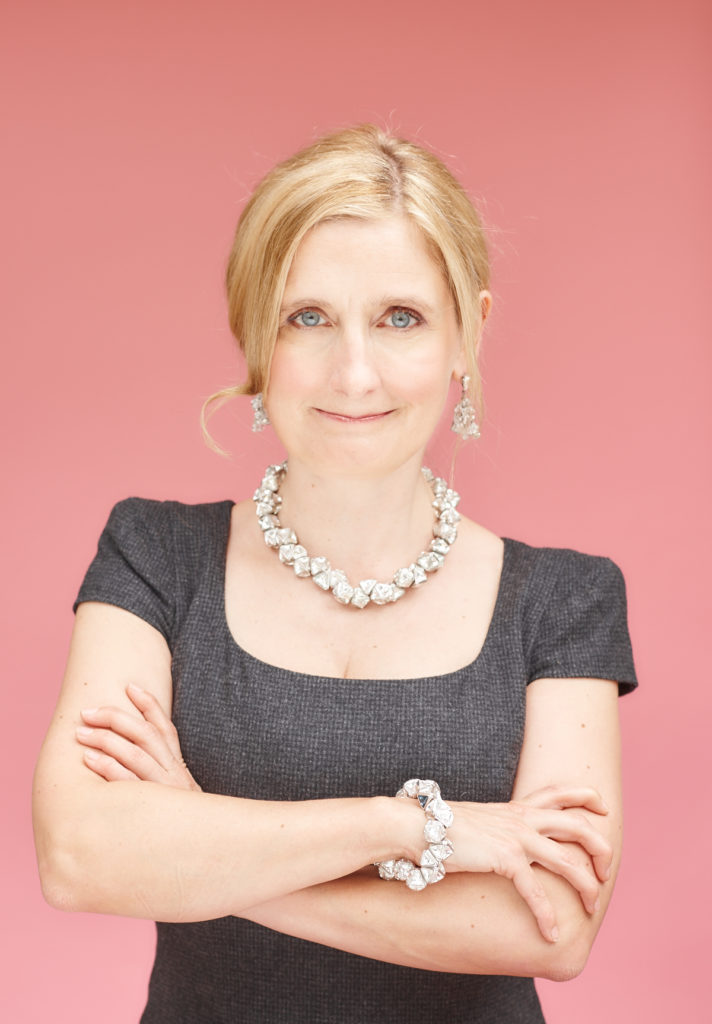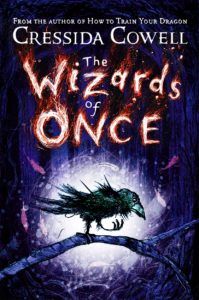Why reading for pleasure is a serious business: Cressida Cowell on the vital importance of children’s literacy


For me, writing for children is the greatest privilege on earth. What a gift it is, to be lucky enough to write for children, and therefore to be constantly reminded to look at the world through the cool clear eyes of a child. For children are interested in the truly important things in life. Heroism, wilderness, our relationship with the natural world, death, love, spirituality, adventure.
My own personal Quest as a writer is to play some small part in trying to get the children of today to read books with the same excitement and wonder that I read them when I was a kid.
Why is it so important that books survive? After all we have films, and television, and they provide wonderful stories for children and adults. I love films and television, they are a glorious medium which can do things that books can’t do. No amount of my verbal description of flying on the back of a dragon can ever compete with the glory of seeing it happen in front of your eyes in sort-of-true-life.
But there are particular things that books offer as a medium, that films and television do not, and I think we cannot afford to lose those things. Books encourage empathy. It’s obvious really: things that happen on a screen happen ‘out there’, but in a book they happen inside your head. You can be given endless history lessons on World War 1 but when you read a book you ARE poor old Private Peaceful walking out to the Front.
I am passionately fighting for the survival of books as a medium because of what I believe is the unique capacity of books for awakening empathy and creative thinking, for providing access to the intelligence of the peoples of the past, and because their use of language and ideas can in themselves help to train our brains in ever more interesting and original ways, and we’re going to need that originality of thought in the future.
And I want to be writing for the many, not the few. I put the emphasis on ‘for pleasure’ aspect because I’ve been an Ambassador for the National Literacy Trust for over a decade and I know that study after study has shown over the years that the two key factors in a kid’s later economic and educational success are one, parental involvement in education and two, reading for pleasure.
At the beginning of writing Dragon or Wizards, I made the decision I’m going to write these books for 8 to 12 year olds and their parents/carers; books that get kids reading, that will be funny, clever, visually packed adventure stories that get kids thinking; books that will be written for everyone, mass market. And those choices I make at the beginning affect everything about the way I write the story and how I present it.
I have to work very, very hard to make sure that the stories are worth the effort the child has to put in to access them. The illustrations are deliberately child-like and scrawly, and look like something the young reader could do them themselves, which is important to me because I want to get them writing as well as reading. They make the books seem kid-friendly, welcoming, and I break up the text with CAPITALS and changes of fonts, all within a nice reasonably short page extent, so as not to be too intimidating.
The plots are wildly unexpected, and they rattle along with a roller-coaster energy that is barely in control. This makes things exciting – the reader does not know what will happen next, and you have to make them feel that they might be in the hands of an author who is prepared to give the story a sad ending if necessary.
I write the books to be read aloud, and that is a key factor in getting a child to read for pleasure. Books read to you in your parents’ voice live with you all your life. Reading a book aloud is a shared joy, and sends an important message to the children being read to: books are important, books are powerful, magical things, that can make your dad cry, or your mum laugh, and have the sort of wisdom in them that can change your life.
And I never EVER dumb down. Children from all backgrounds are just as intelligent as they ever were. My job is to engage the questioning spirit of children, so these are the kind of questions I’m asking the kids in these little fantasy books about dragons and wizards: do we live in a world of determinism or free will? What is your relationship with your parent, your family, and what is your responsibility to your Tribe? How should we look after the environment, and wilderness, the natural world around us? What makes a good leader? How can we prevent Wars from happening?
So we must fight harder, stronger. It’s a team effort. I’ve given you a taste of the sort of thinking that goes on in every modern children’s author’s head when they’re trying to write books for children to enjoy, and it is my belief that we have risen to the challenge posed to us by the competition of the screen, and children nowadays have a magnificent choice of books to read.
If we want every single child to become a reader for pleasure we need well-stocked libraries in every single primary school library in the country, where the books look modern and exciting and relevant to the children’s lives, like sweets, not Brussels sprouts. We need librarians in those schools, someone attached to each school who is an expert in getting children to read for pleasure, and getting the right book in the hands of the right child at the right time. We need to keep on conveying the message to parents that getting children to read is not something they can leave up to the school but is something in which they themselves have a vital and urgent role, by reading with their children right from birth and way beyond the age when they can read for themselves.
For the world faces so many problems we need, if anything, for the children of the future to be more intelligent than the children of the past. We need their questioning spirit and their imaginations, so that they can come up with creative solutions to those problems. And being readers for pleasure will help them to do that.
Cressida Cowell is the author-illustrator of the 8-million-copy-selling How to Train Your Dragon series. Her most recent book, The Wizards of Once, went straight to the top of the UK Children’s Chart when it published in September 2017. Cressida has been an Ambassador for the National Literacy Trust for over a decade.




